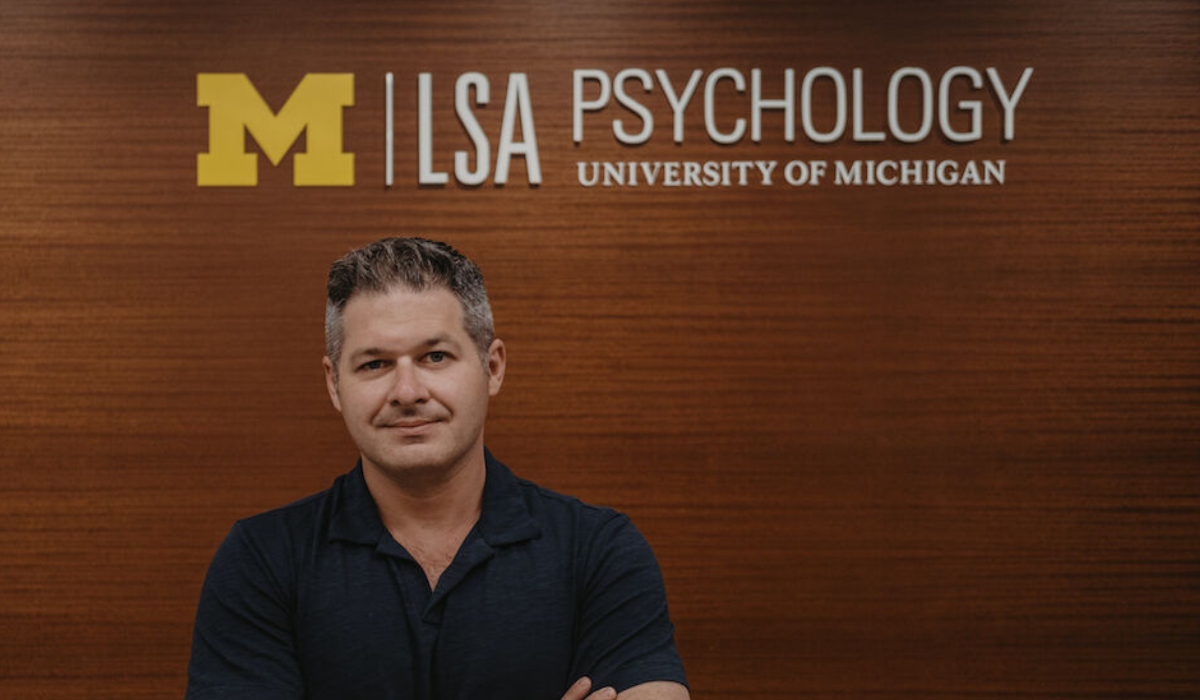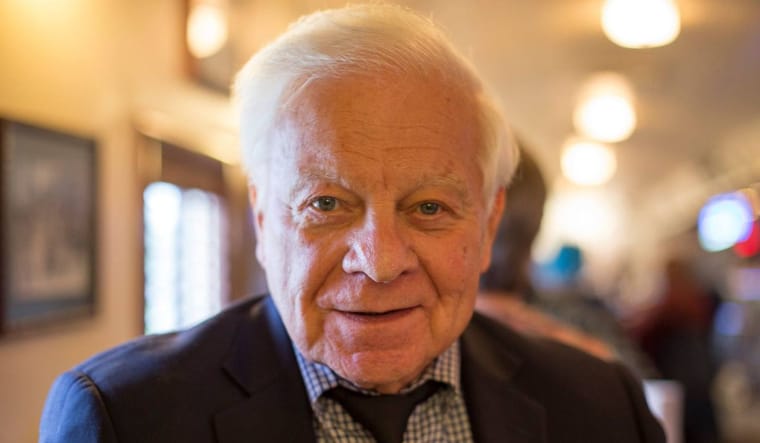Ethan Kross, PhD, on the Art and Science of Managing Your Emotions So They Don’t Manage You
Do you struggle with your emotions?
If you’re like most people Ethan Kross has met as he’s traveled across the country over the last two weeks talking about his new book, Shift: Managing Your Emotions—So They Don’t Manage You, there’s a good chance you answered “yes.”
“There’s data showing that the curves of distress are going in the wrong direction, and that things like anxiety and loneliness are getting worse,” says Kross, an acclaimed psychologist and one of the world’s leading experts on controlling the conscious mind. “I think it is one of the big challenges we face as a species right now.”
Yet Kross is quick to add that struggling with emotions is a timeless issue. As he writes in Shift, the first surgical technique developed 10,000 years ago involved carving holes in people’s skulls to help them manage big, dysregulated emotions. In 1949, a Portuguese neurologist won the Nobel Prize for inventing the lobotomy—essentially, poking holes in the brain to help someone manage their emotions. Kross also points out that in the best-selling book of all time (the Bible), the most famous story (Adam and Eve) is all about emotional dysregulation.
“This has been a perennial challenge,” says Kross, “and what I find unbelievably exciting and hopeful is that we actually now have a science that that gives us some insight into how we can non-invasively deal with these kinds of issues.” The Sunday Paper asked Kross to explain some of these science-backed tools that can help us manage our emotional lives and share what he’s learned about the ways each of us can work to control our emotions so they don’t control us.
A CONVERSATION WITH ETHAN KROSS, PHD
In Shift, you dispel some common myths many of us have about our emotions. Is there one that surprises a lot of people?
One myth is that avoidance is toxic across the board. There’s a myth that whenever you’re struggling with something, you should dive in and get to the bottom of it. In some ways, this is an intuitive idea. It’s certainly been reinforced for many of us; I know I was raised to believe that when there’s a problem, you deal with it head on. I think we’ve also seen the hazards that can come at the other end of the extreme with chronic avoidance.
But what we’ve done is throw the baby out with the bath water, and many of us believe that we have to choose between approaching or avoiding. We lose sight of the fact that actually, you can do both.
Let’s say I get really bad news, and it immerses me in negativity. What I’ve learned over time is that taking some time away from that news—a couple of hours, even a couple of days—and then coming back to it can be helpful. Sometimes I come back to the problem and it doesn’t even exist anymore. Other times, I come back to the problem and can see it from a different perspective. That’s just one example of how being strategic with how you deploy your attention can be useful.
Another myth is that venting helps you work through your feelings. There’s a seductive allure to finding someone and just letting it all out. But the problem is this: If all you do is vent about your problems, you leave the conversation feeling good about the person you vented to, but the problem is still there. When you’re done venting, talk to someone who ideally allows you to broaden your perspective as well.
We hear a lot about the importance of living in the moment, but you say this isn’t always the best approach. Why? When is it beneficial to not be in the present?
We do hear this a lot, but most of us are able to recognize that there’s a lot of value that comes from traveling in time in your mind in time. We can learn from past mistakes, plan for the future, and even savor past experiences. We can also use this capacity to travel in time in our mind to our emotional benefit. Let’s say something really bad is happening to me. I can ask myself, “How am I going to feel about it tomorrow, or next week, or next year?” This highlights the fact that what I’m going through is temporary. Things will get better.
I start Shift with a story of my grandmother fleeing from Nazis. When I’m really struggling with something, I time travel back to the 1940s and spend some time with her. And then I’m left saying, “Wow. What were you worried about, Ethan? Because compared to that, this is pretty small.”
Many of us can relate to scenarios where difficult emotions send us spiraling. What do you suggest we do when this is happening?
Number one, recognize that you have some agency over your emotions. A lot of people don’t actually believe that we can control our emotions. And if you don’t think you can, you’re not going to take efforts to do so.
Once people become more literate about their emotional life and they recognize what emotions are, why we have them, and how all emotions—even the bad ones—are good for us, then it becomes possible to think tactically about what to do when emotions are no longer serving you.
The moment you have that recognition, that’s when you go to your toolbox of skills—your toolbox of shifters. People ask me all the time, “Do you ever get controlled by emotions?” My answer: I’m human! I get triggered at times, like everyone else. But what I’m really good at is identifying the moment an emotion ceases to be helpful, and then I have tools I implement automatically. This means I’m very rarely in a situation where my emotions have taken over.
How do we catch ourselves in the emotional spiral, so we know it’s time to dip into that toolbox?
It can be as simple as asking yourself, “Do I want to continue feeling this way?”
There are times when we benefit from our negative emotions. For example, anger is functional. We experience that emotion when our view of what’s right or wrong is violated. And in that circumstance, anger can motivate us to fix the situation. This is why anger fuels collective action.
My advice is to ask yourself, “Is this emotion that I’m experiencing serving me well? Do I want to continue feeling it?” And the moment you say, “No, it’s not serving me well,” or “No, I don’t want to continue feeling it,” that’s when you go immediately to your toolbox of shifters.
If a reader could walk away from Shift with just one actionable strategy to start improving how they manage their emotions, what would you recommend?
Familiarize yourself with the tools that are out there and start self-experimenting.
Being emotionally fit is a lot like being physically fit. The way you get physically fit is to first and foremost, familiarize yourself with the different exercises that are out there—whether it’s weightlifting or Pilates or yoga. Once you learn how to do it, then you have to see what fits best for you, based on your goals. There’s huge variability from person to person, and many different paths to becoming physically fit.
There are many paths to becoming emotionally fit. What are the tools that will help you get there? Start experimenting to figure out which ones work best for you and share this with other people.
We’re an emotional species. We experience emotions almost all of the time that we are awake. But if you ask most people to define what an emotion is, they really struggle—and they don’t need to. Emotions are an incredibly important part of our lives, and I think devoting some resources to getting a little better at managing our emotions, using science as a guide, would do a great deal of good for humanity.
Ethan Kross, PhD, is an award-winning professor in the University of Michigan’s top ranked Psychology Department and its Ross School of Business, and the director of the Emotion & Self Control Laboratory.
Please note that we may receive affiliate commissions from the sales of linked products.




